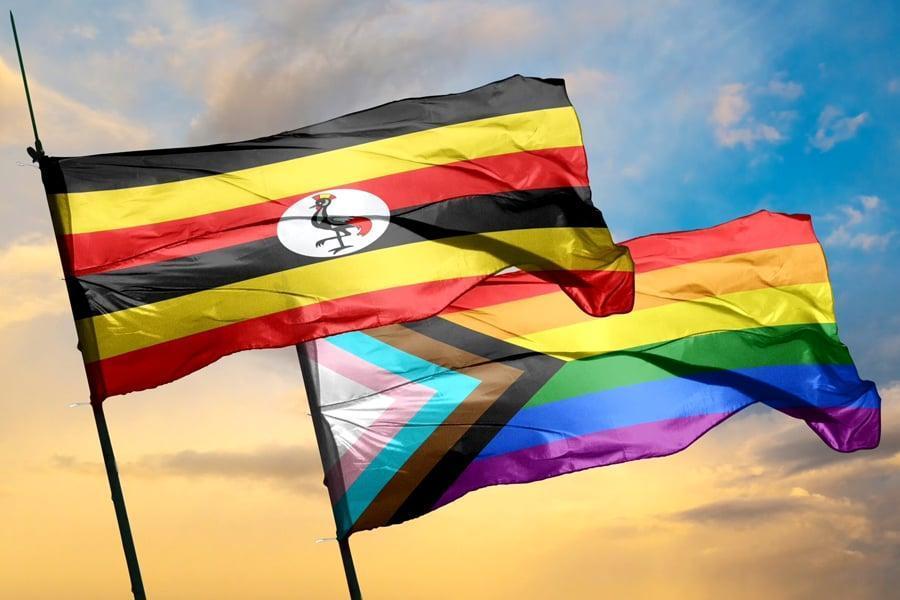Africa-Press – Uganda. The World Bank has lifted its two-year freeze on new loans to Uganda, reversing a decision taken after the enactment of the Anti-Homosexuality Act (AHA) in 2023—one of the world’s harshest laws targeting LGBTQ persons.
The Bank had suspended fresh funding on grounds that its programmes risked reinforcing discrimination under the new legislation.
But on Thursday, the Washington-based lender announced it was now satisfied that “mitigation measures” had been put in place to safeguard inclusion and protect vulnerable groups.
These measures, developed with the Ugandan government and third-party stakeholders, will guide the design and implementation of future projects.
“The World Bank cannot deliver on its mission to end poverty and boost shared prosperity on a liveable planet unless all people can participate in, and benefit from, the projects we finance,” a spokesperson told AFP.
The Bank confirmed that new financing had been approved for initiatives in education, social protection, and refugee and displacement support.
The resumption of funding is a welcome relief for Uganda, which has faced mounting budgetary pressure since the US suspended major aid channels, including through the President’s Emergency Plan for AIDS Relief (Pepfar) and USAID-linked initiatives.
According to the Finance Ministry, donor receipts for fiscal year 2024/25 had already dropped sharply, straining service delivery in key sectors.
The World Bank remains one of Uganda’s biggest multilateral lenders, funding transport, energy access, and public service delivery.
However, the broader aid landscape has shifted dramatically since the AHA was signed into law.
President Museveni has consistently defended the legislation, brushing off threats of sanctions and aid cuts as imperialist overreach.
Addressing World Bank officials in a meeting during the freeze period, Museveni warned against using money to push foreign agendas.
“It is… unfortunate that the World Bank and other actors dare to want to coerce us into abandoning our faith, culture, principles and sovereignty, using money,” he said.
He added: “We don’t need pressure from anybody to know how to solve the problems of our society.”
Museveni called the law necessary to prevent the “disoriented” LGBTQ community from “recruiting” others.
“The signing is finished, nobody will move us,” Museveni said in November 2023, signalling Uganda’s firm stance against Western pressure.
He reiterated his belief that homosexuality was a “psychological disorientation,” and that the law aimed to prevent recruitment into what he described as a “problem.”
“The problem is that, yes, you are disoriented. You have got a problem to yourself. Now, don’t try to recruit others. If you try to recruit people into a disorientation, then we go for you. We punish you,” he said.
“But secondly, if you violently grab some children and you rape them and so on and so forth, we kill you. And that one I totally support, and I will support.”
However, he maintained gays who lived quietly with this “disorientation”- without recruiting or forcing others into the act – would not be touched by his government.
Museveni’s hardline posture is mirrored across much of Uganda’s leadership. Speaker of Parliament Anita Among, one of the strongest backers of the anti-gay law, was last month sanctioned by the United Kingdom under its Global Anti-Corruption Sanctions Regime.
The UK accused her of personally benefiting from diverted funds meant for the Karamoja iron sheet relief programme.
Among rejected the sanctions as politically driven and tied to her support for the AHA. “This is because I stood firm to protect our culture and values,” she told Parliament.
She has repeatedly insisted that foreign criticism of the law is part of a broader Western campaign to erode Uganda’s sovereignty.
“We will not allow ‘bumshafters’ in our country and they should respect our cultures,” she told Parliament.
Analysts say such rhetoric has deepened the sense within the ruling establishment that Uganda is under siege—economically and ideologically—from Western powers opposed to its domestic policies.
Economic data suggests those costs are real. A report by Open for Business estimated that Uganda lost between $470 million and $1.7 billion in investment, tourism, and donor funding in the first year after the AHA came into force.
The US and EU also increased scrutiny of development partnerships and civil society funding.
Information Minister Chris Baryomunsi defended Uganda’s stance, calling the World Bank freeze “uncalled for” and insisting the law does not target individuals unfairly.
“The Anti-Homosexuality Act is a law passed by our Parliament to reflect the will of our people and preserve our cultural values. It is not discriminatory,” he said.
The World Bank’s U-turn appears to signal a pragmatic recalibration. While the Bank stressed its commitment to inclusion, it also acknowledged the need to re-engage with countries where development outcomes remain vulnerable to political and social complexities.
Uganda now joins a growing list of African countries—including Ghana, Nigeria, and Kenya—where anti-LGBTQ laws or sentiments have hardened, setting the stage for ongoing tension between local governments and international donors over where development ends and values begin.
For More News And Analysis About Uganda Follow Africa-Press






